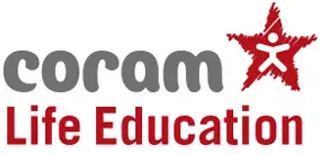For this session we welcomed Dr. Paolo Deluca to share his knowledge and insights into addiction and substance use amongst young people. Given the vastness of this topic, attention was given to trends and prevalence of substance use and the risks and consequences of frequent and long-term drug use. Paulo also answered questions in a session facilitated by leading education professional Professor Barry Carpenter.
Dr. Paolo Deluca is Reader in Addiction Research with a background in cognitive and developmental psychology, and over twenty-year experience in the addiction field. His two main areas of interest are in alcohol consumption and dependency and trends in novel psychoactive substances (sometimes referred to as ‘legal-highs’, these are compounds designed to mimic existing established recreational drugs, and include laughing gas).
Slides from the session
ACAMH Members can receive a CPD certificate, simply email and let us know the date and time that you watched the recording.
About the event
Adolescence is a key period in human physiological and psychological development. It is also a time when some young people will initiate substance use. A mix of genetic and social factors appear to explain why some young people are at risk of developing problems; young people who experience adversity or trauma are at an increased risk of developing a problematic relationship with drugs (Moustafa et al, 2018). There is evidence pointing to the disruptive effect that drug use has on education, relationships and other areas of development, particularly in adolescence (Degenhardt et al, 2016).
A class of drugs known as Novel Psychoactive Substances (NPS) continues to present a risk to some young people even though most of these substances were made illegal following the introduction of the Psychoactive Substances Act in 2016. The term NPS is an umbrella term for synthetic drugs which claim to mimic the effects of other drugs, although, some NPS derivates will produce markedly differing effects compared to their more traditional counterparts.
Young people who develop problems with drugs will have issues that go beyond just the type of drugs used, whether that is coping with mental health, trauma or social problems. As anchor institutions in society, schools play an important role in supporting pupils who may be at risk of substance use. As teachers, it is important to be aware of some of the trends and risks of frequent and/or long-term drug use and its consequences to psychological wellbeing, in order to better support young people who are experiencing difficulties.
Key Takeaways
- Understand the trends and prevalence of substance use amongst young people
- Challenge some of the common myths around addiction and substance use
- Explore the associated risks and potential psychological consequences for young people who regularly use drugs
Resources
Addiction & Substance Use – Topic Guide
Irrespective of the age group it is just as important to be aware of what we don’t know as what we can be more confident about. This is particularly true of young people and drug use, as most research investigating prevention and interventions has tended to focus on adult populations.
Addiction and Substance Use Podcast
Ian Hamilton, Associate Professor of Addiction at the University of York, and Jo Carlowe discuss mental health problems and substance use co-occurring, the lack of data on young people’s substance use and risk factors and pathways to support.
Youth Substance Use and Co-occurring Mental Health Concerns
In this podcast, we talk to Dr. Jillian Halladay, winner of ACAMH’s Research Trainee of the Year 2021 Award, about her research into the co-occurrence of substance use in youth in general and in acute clinical settings.
Global development and injecting drug use in a new generation of adolescents
Dr. Lindsey Hines and Dr. Adam Trickey blog. People who inject drugs tend to begin doing so in adolescence, and countries that have larger numbers of adolescents who inject drugs may be at risk of emerging epidemics of blood borne viruses unless they take urgent action.
Office for National Statistics Drug misuse in England and Wales: year ending March 2020
Other FREE Events for teachers can be found at our Teacher Hub. This brings together the resources on our website that is most relevant, and useful, for teachers to use.
About the Speakers

Dr. Paolo Deluca is Reader in Addiction Research with a background in cognitive and developmental psychology, and over twenty-year experience in the addiction field. Paolo studied Psychology at the University of Padua, Italy, and completed his PhD on cognitive development at Lancaster University UK in 2000. He moved to London to work at the Institute of Psychiatry in 2001, then moved to St George’s University of London. He rejoined the Institute of Psychiatry in 2007.
Throughout his time at the IoPPN he has been working on numerous national and international projects. He was the programme manager of the National Alcohol Screening and Brief Intervention Research Programme for Sensible drinking for adult (SIPS) and adolescents (SIPS jr). He is deputy lead for the South London NIHR CLAHRC Alcohol Theme.
He was also involved with the EC funded AMPHORA project on Early diagnosis and treatment, the ODHIN project on Optimizing delivery of health care interventions and the MRC funded pilot study of Assertive Community Treatment in Alcohol Dependence (ACTAD). He was lead researcher and co-principal investigator on the EU funded Psychonaut 2002 and Psychonaut EWS projects on illicit drug information and availability of “legal highs” on the Internet which have developed a web monitoring system for novel psychoactive substances (NPS). Recently, he has been awarded grants from the European Commission which look at the Internet and other ICTs to deliver prevention services addressing the use of novel compounds in vulnerable individuals (ReDNet, 2010-2012), the marketing strategies of legal highs (ALICE RAP, 2011-2016), the misuse of codeine (CODEMISUSED 2013-2017) and the real time monitoring of the availability and distribution of NPS over the Internet (CASSANDRA 2015-2017).
He has particular expertise in conducting and evaluating health service and public health research. He also has a specific interest in Information Technologies and their roles on substance misuse prevention and treatment (eHealth). Paolo Deluca has also extensive expertise on national and international clinical trial management, intervention development, delivery and evaluation. Bio via KCL.

Professor Barry Carpenter has been appointed to the ACAMH Board with special responsibility for disseminating our work to schools, teachers, and others involved in the education of children and young people. Barry is the UK’s first Chair of Mental Health in Education, at Oxford Brookes University
In a career spanning more than 40 years, Barry has held the leadership positions of Headteacher, Principal, Academic Director, Chief Executive, Inspector of Schools and Director of the Centre for Special Education at Westminster College, Oxford. In 2009, he was appointed by the Secretary of State for Education as Director of the Children with Complex Learning Difficulties and Disabilities Research Project. Since completing that research, Barry has overseen the development of a national project developing online ‘Training materials for teachers of children with severe, profound and complex learning disabilities’ www.complexneeds.org.uk
Full bio on ACAMH Board page.

Coram Life Education is the leading provider of relationships, health, wellbeing, and drugs education to almost half a million children across the UK, delivered under the strapline ‘Helping Children Make Healthy Choices’. Trained Educators use evidence-based, interactive, creative methods and resources to stimulate curiosity and imagination amongst children in 1 in 10 English and Scottish primary schools (2,041 schools).
Our memorable life skills sessions are currently delivered as ‘Life Base’ in school or as ‘SCARF Live Online‘ sessions via Zoom. Coram Life Education takes a three strand approach addressing children’s knowledge, skills and attitudes, and programmes are aligned with the National Curriculum (Citizenship, PSHE Education), covering all Key Stages. Coram Life Education helps schools meet their statutory requirements for Relationships and Health Education, children’s Spiritual, Moral, Social and Cultural development, and Ofsted inspection criteria for personal development, behaviour and welfare. Coram Life Education’s programmes are also aligned with Scotland’s Curriculum for Excellence. Recognising the role of the community and home life in influencing children’s choices, we design our programme with schools and deliver special sessions and assemblies for parents and carers to amplify our effectiveness.


